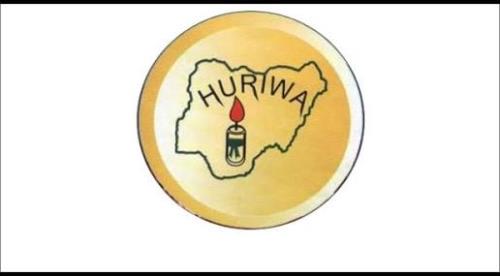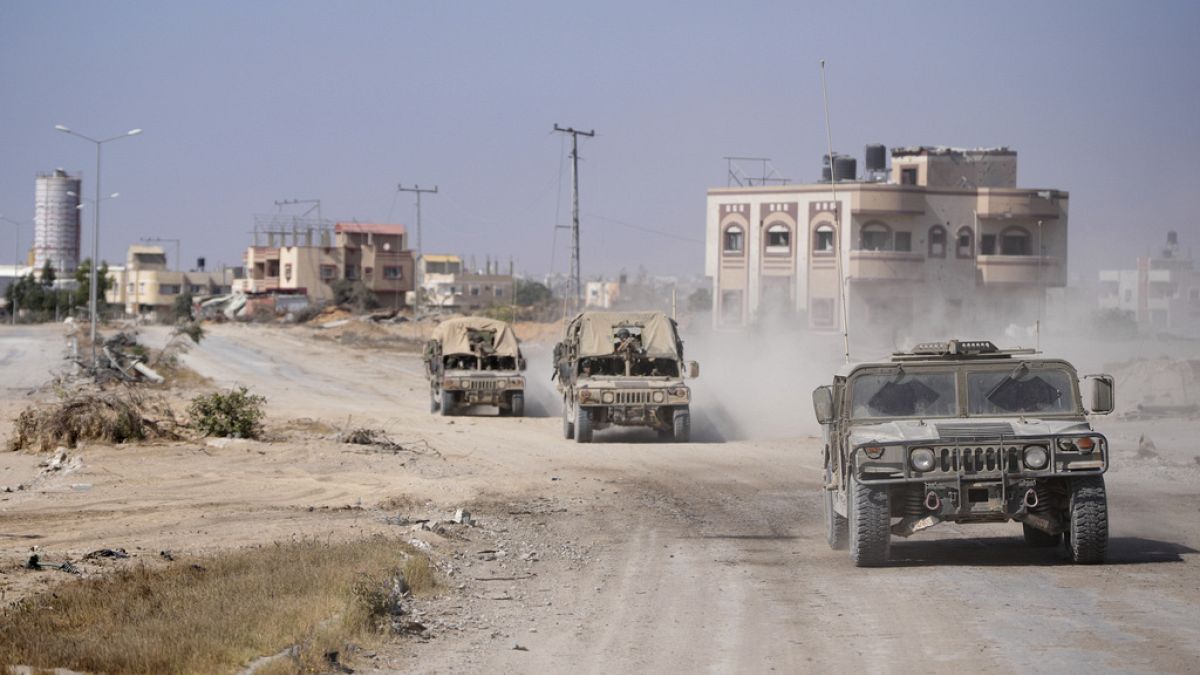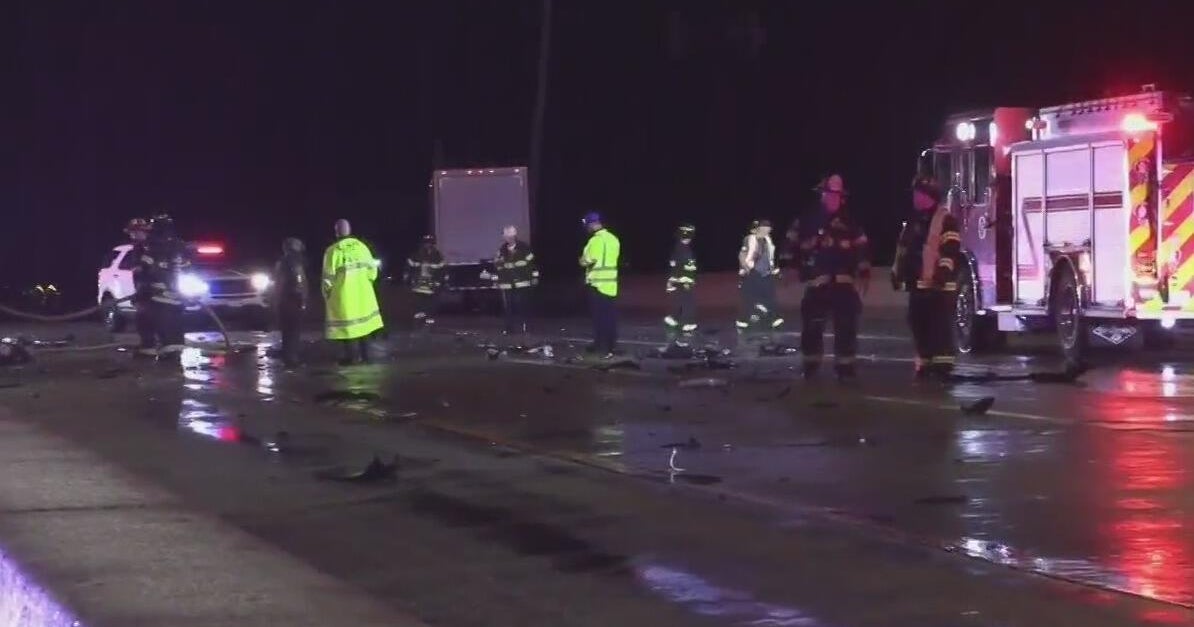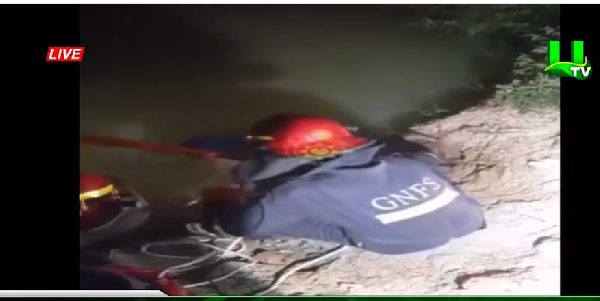Rising road crashes amid poor vision, weak enforcement, corruption, obsolete equipment
The poet, John Pepper Clark, once wrote in his poem, The Casualties, that the true victims of war are not only those who die or lose property, but also those standing outside the line of fire, wounded in quieter, less visible ways. In Nigeria, a similar truth plays out every day not on battlefields, but on the nation’s highways, streets, and rural roads. Today, more Nigerians are killed and injured by road crashes than most dreaded diseases. The casualties are not just the dead; they are the families left behind, the communities shouldering the economic and emotional cost, and a nation staggering under avoidable losses. In this report, KINGSLEY JEREMIAH writes that eye impairment remains a significant enabler of silent killer on Nigerian roads.
EMONUGBE Damian has been a truck driver, moving furniture and goods across Edo State, since 2013. Aside from truck driving, Damian is a civil servant at the University of Benin Demonstration Secondary School.
Like many Nigerians, who struggle to make ends meet, he moves from one job to another. For years, Damian manoeuvred Nigeria’s ‘death trap’ roads without challenging incidents until one fateful night.
Earlier in the day, while returning from Adumwa in Delta State, he was caught in a traffic jam, which kept him into the night. Damian, however, decided to drive through the dark, poorly lit road into Benin City. He did not see the deep pothole in the front. His truck lurched violently, bursting both tyres on the driver’s side. He and the two passengers in the truck were lucky as they escaped having a fatal accident.
“It was supposed to be a fatal accident,” Damian reflects, still grateful. “I was lucky.” At first, Damian chalked it up to hard luck or fatigue. But when he later stumbled on a free vision screening programme, See to Save, by a nonprofit organisation, VisionSpring, he received a shock that his eyesight had been failing for years.
“I didn’t think of checking my eyes. I thought I could still read, although things far away were blurry,” Damian admits. Thanks to VisionSpring, an organisation providing affordable eyeglasses to low-income workers, Damian received a pair of glasses in late 2023 for less than N3,000 ($2). The first time he put them on; it was as if the world had been pulled into focus.
“I could see clearly,” he says, smiling, “especially at night. It made a big difference.”
Damian now follows a strict personal rule of not driving past 8:00pm. Even with his improved vision, he has learnt that safety comes first. But he often wonders how many others are out there, driving blind without knowing it?
Despite the growing danger, Nigeria lacks strict national policies enforcing regular eye health checks for drivers, leaving many behind the wheel with undiagnosed or untreated vision problems.
For countless drivers, poverty makes routine eye tests or prescribed glasses an unaffordable luxury, while cultural attitudes often downplay the seriousness of vision loss, brushing it off as a natural part of aging or something that doesn’t truly affect driving ability. This deadly mix of weak enforcement, financial barriers, and misconceptions turns poor eyesight into a silent, unacknowledged threat on the nation’s roads.
A few days ago, the death of prominent Kaduna cleric, Azzaman David, dominated the news, just like the tragic loss of the 21 athletes from the Kano contingent, who had recently participated in the National Sports Festival in Abeokuta, Ogun State.
Both incidents involved avoidable road accidents. These victims, who are breadwinners, husbands, sons, daughters, and relatives, could never have imagined that Nigeria’s dangerous roads would claim their lives. Some of them, while alive, would never have imagined that the drivers they hired or paid to ferry them beyond the many challenges on Nigerian roads might have impaired vision.
Many assumed that the Federal Road Safety Corps (FRSC) routinely tests drivers’ eyesight. But little did they know that, in reality, many drivers never even visit the licensing centres before obtaining approval to drive. It is the same situation with roadworthiness certificates.
In Nigeria, vehicles often receive these approvals without ever passing through the designated inspection centres. With bad roads, lack of road signs, unreliable health infrastructure, weak enforcement of road safety standards and indeed very limited ambulances, Nigeria has over the years faced unabated road accidents that should have been declared a matter of state of emergency.
UN’s 50% RTCs Death Reduction A Mirage in Nigeria
OVER the past five years, Nigeria has lost at least 26,303 lives to road traffic crashes (RTCs), according to data from the Federal Road Safety Commission (FRSC) and the National Bureau of Statistics (NBS).
The numbers show that in 2020 alone, there were 10,522 reported crashes involving 17,614 vehicles, with 4,794 deaths, barely an improvement from the 4,878 fatalities recorded in 2019.
Instead of declining, the death toll rose sharply to 6,205 in 2021 from 13,027 crashes and climbed further to 6,456 fatalities in 2022 from 13,656 incidents.

Although 2023 saw a reduction to 5,081 deaths, and 2024 slightly rose again to 5,421 deaths from 9,570 crashes, be that as it may, the overall trend remains disturbing.
But the tragedy isn’t only in the death toll. The number of injured survivors, many of them permanently disabled, remains worrisome. Over 39,000 people were injured in 2021; 38,930 in 2022; 31,874 in 2023, and 31,154 in 2024.
These are not just statistics; they are human lives, people left unable to work, families burdened with long-term care, and communities deprived of active members.
The economic loss is equally severe. In five years, at least 46,870 vehicles have been completely destroyed or critically damaged. Assuming an average vehicle price is N5 million, this translates to a staggering N234.5 billion lost, a blow not just to individuals but to the national economy.
Some of these vehicles constitute another layer of environmental crisis in Nigeria in terms of spilling of petroleum products, escalation of methane, food wastes and wreckages of vehicles and batteries.
All of this stands in contrast to the global commitment made in September 2020 by Nigeria, when the United Nations General Assembly adopted Resolution A/RES/74/299, “Improving Global Road Safety,” launching the Decade of Action for Road Safety 2021–2030 with the ambitious target of cutting global road traffic deaths and injuries by at least 50 per cent by 2030.
Based on Nigeria’s current trajectory, that goal is a mirage. Without urgent, targeted interventions including tackling hidden factors like vision impairment, Nigeria risks walking down a road paved with preventable tragedy and enormous human and economic cost.
A commercial driver working for Feed Waters, a bottled water company in Benin, Onyencholam Johnbull, understands the struggle of driving with vision problems but he continues to risk his life and that of other road users because he is the breadwinner of his family..
After his small provision shop collapsed owing to a lack of capital, Johnbull turned to driving to support his family. Over the years, his eyesight deteriorated, but he kept it a secret. He avoided night driving when possible, dreading the blur of headlights and indistinct road signs.
“I knew my eyesight was going,” Johnbull confesses. “But I just kept going.” It wasn’t stubbornness alone that kept him from seeking help. For many Nigerian drivers, the idea of seeing an optometrist is considered an unnecessary indulgence.
Glasses carry a social stigma; many fear they will look weak or incompetent, and some feel it is also the rich who wear glasses to see better. That changed for Johnbull when a friend introduced him to VisionSpring through the Federal Road Safety Corps (FRSC). At his first eye test, it became clear his vision was well below the safe level for driving. Luckily, the nonprofit organisation gave him a simple pair of prescription glasses. That singular act brought back his vision.
“Everything looked new,” he marvels. Since then, Johnbull’s work performance has improved, his confidence on the road has returned, and, perhaps, most importantly, he no longer fears stepping out after dark. But like Damian, he knows he is just one of thousands, maybe millions of Nigerian drivers silently struggling with the same invisible danger.
Monday Osagie, a truck driver for Suntech, a construction supply company in Benin, has been on the road since dawn most days. His eyesight problems began at 19, but for decades, he adapted.
“I thought it was normal to struggle,” Monday says. For years, he avoided night driving and worked only in daylight, but his earnings were limited. Prescription glasses were out of his financial reach. When he finally attended a free VisionSpring screening, the change was immediate.
“It was like stepping into a new world,” he says. “Now I can take extra shifts. I can plan for the future. I even see my children’s faces clearly at home.”
Monday’s story underscores the fact that poor vision is not just a health issue, it’s an economic and social one. For drivers like him, better eyesight translates directly to better income, better safety, and a better quality of life.
While these personal stories are inspiring, they also reveal a troubling national picture. Nigeria’s roads are notoriously dangerous, with road accidents among the leading causes of death. Poor roads, reckless driving, and mechanical failures are often blamed. But one key factor remains largely unaddressed: undiagnosed or uncorrected vision problems.
According to the recent National Blindness Survey, 0.42 per cent of Nigerians have some form of visual impairment. With Nigeria’s population now exceeding 230 million, this translates to nearly 40 million people. Among them are thousands of commercial drivers, men and women responsible for moving goods, passengers, and keeping the economy running.
Yet, incredibly, a driver’s licence in Nigeria can still be obtained without a proper eye examination. Unlike Ghana, where mandatory vision certification is required for drivers, Nigeria’s licensing process relies on paperwork and payments, with little attention to medical oversight. This is not just a regulatory gap; it’s a public health crisis hiding in plain sight.
Ibrahim Saliu almost lost his life on Kubwa Expressway. That day, he had loaded passengers from the Area One Park in Abuja, heading towards Dutse, when his vehicle suddenly veered off the road and crashed into a ditch between the expressway and the service lane.
Saliu hadn’t expected rain; he had recently survived an accident on a rainy day and usually pulled over when the downpour became heavy. But this time, caught off guard, he landed his passengers in the ditch; some escaped with minor injuries, the narrow escape shook others. In Nigeria’s North-Central zone, the country’s leading hotspot for road crashes, it’s hardly surprising that residents of the Federal Capital Territory wake up to yet another report of a wreck.
On Abuja’s roads, nightfall and rainfall fuel accidents so frequently that many wonder aloud if most drivers are practically driving blind.
COUNTRY Manager for VisionSpring Nigeria, Abimbola Ogundirahun, noted that 90 per cent of driving decisions are visually motivated.
Since launching in Nigeria in 2022, VisionSpring has screened over 125,000 drivers and provided at least 40,000 pairs of glasses. Their work spans collaborations with large corporate fleets like Dangote Group and Olam as well as transport unions like the National Union of Road Transport Workers (NURTW), covering over 50 cities and towns. But that is just a drop in the ocean.
Ogundirahun said the impact goes beyond preventing crashes. Correcting drivers’ vision improves workplace productivity, reduces vehicle wear and tear, and boosts confidence. Companies such as DHL, for example, have seen measurable improvements in their driver performance indicators following interventions.
But reaching more drivers requires funding, awareness, and a shift in societal attitudes. To address the social stigma, VisionSpring and its partners run campaigns, often alongside the FRSC, to show that wearing glasses is not a weakness but a professional responsibility.
As Ogundirahun points out, many Nigerian drivers never attended formal driving school. They learn informally, moving up from apprenticeships without undergoing medical or visual assessments. This only amplifies the risks.
President of the Nigerian Optometrists Association, Dr Anderson Chimeziri, has been advocating for mandatory driver vision screening for years.
As far back as 2002, during his national youth service, Chimeziri wrote to road safety authorities urging them to integrate eye tests into the licensing process. While initial responses were positive, implementation faltered.
One major challenge, he explains, is that the FRSC attempted to buy vision testing machines and train non-specialist staff to conduct screenings, a move that violates medical standards.
“The law designates optometrists as the qualified professionals for vision assessments,” Chimeziri says. “We can’t shortcut that.” Efforts are now underway at the state level, with Abia State and Lagos leading reforms that would require drivers to obtain a vision certificate from accredited clinics before receiving or renewing a licence. If many states adopt these measures, the momentum could push towards national implementation.
Former Director of the Lagos State Drivers’ Institute, Ayodeji Oyedokun, insisted that proper eyesight is important for road safety, noting that around 75 per cent of drivers screened by the institute were found to have undiagnosed vision problems.
He explained that driving is fundamentally about visibility both seeing clearly and being seen and stressed that many drivers mistakenly believe they have no visual impairment until properly tested.
Oyedokun recalled that when the institute was established, the Lagos State government ensured that each of its five training centres, located in Ikeja, Badagry, Ikorodu, Lagos Island and Epe were equipped with an eye clinic staffed by qualified, government-employed optometrists.
According to him, these clinics remained operational; while the institute is not an enforcement body, it required vision tests for those undergoing training.
Citing a specific example, he shared that a 71-year-old driver was found to have better eyesight than many younger ones, underscoring the value of regular screening. He emphasised that eye tests must be conducted in-house by certified professionals rather than allowing drivers to submit external reports, to ensure accuracy and reliability.
He argued that some accidents are not properly investigated in Nigeria as most cases attributed to mechanical failure or speeding may actually result from impaired judgment.
He called for stricter federal-level regulation of driver testing, especially before licences are issued, describing the current practice of issuing certificates without rigorous checks as dangerous.
For the Chief Executive of Safety Beyond Borders, Patrick Adenusi, the link between vision and road safety in Nigeria is undeniable. Patrick noted that many drivers on Nigerian roads can barely see clearly, yet continue to operate vehicles without the necessary corrective lenses.
At designated training centres, drivers are expected to undergo refresher courses, including vision tests. But according to Adenusi, enforcement remains weak.
“If we make it mandatory for drivers to wear their prescribed glasses before a licence is issued, many will simply collect the paper that says their licence is ‘in process’ and never come back,” he warns. He advocates for stronger systems, integrating eye tests into the licence application process and centralising testing to curb corruption.
“We know what happens when people are told to go to external centres, N2,000 can get you a fake certificate saying your eyesight is fine,” he says.
From improperly focused headlights to poorly lit homes and classrooms, Adenusi paints a broader picture of environmental factors degrading visual health in Nigeria.
As he puts it, “if you don’t see well, you’re a danger to everyone, pedestrians, cyclists, and other drivers alike.”
Weak Enforcement, Corruption and Obsolete Gadgets
IN Ibadan, Oyo State, a young man seeking a driver’s licence found himself entangled in a system where shortcuts are not only available but encouraged by the very authorities tasked with ensuring road safety.
The applicant, who chose to remain anonymous, was directed to an FRSC official, Busayo Ebenezer, stationed at the Licensing Office within the Ibadan Northeast Council Secretariat at Iwo Road.
He had never attended a driving school, but that was no obstacle. For a fee paid into an FCMB account (3515801011), Ebenezer assured him that a driver’s licence could be arranged through a ‘training school’ he allegedly operated.
Months later, without undergoing any form of training, testing, or medical evaluation, the applicant received a certificate and subsequently, an official driver’s licence, valid and seemingly legitimate.
This is not an isolated incident. Across Nigeria, similar stories of underhanded transactions and lax oversight dominate the narrative surrounding road traffic licensing. The failure of enforcement and a culture of corruption have deeply compromised the integrity of the driver’s licence issuance process and the death toll is a marker.
According to the National Road Traffic Regulations (NRTR), amended in 2022, any applicant seeking a fresh driver’s licence must first present evidence of having undergone formal training at an accredited driving school. They must also obtain a learner’s permit and certificates attesting to their visual acuity and overall medical fitness.
The regulations further stipulate that a training certificate remains valid for just six months. Beyond that, the applicant must repeat the training and testing process afresh before being granted a licence.
But in practice, these provisions are often bypassed, rendering the entire system a mere formality, undermined by bribery and weak enforcement. When contacted, FRSC spokesperson, Ogungbemide Olusegun, distanced the Corps from the full scope of the licensing process. He explained that the FRSC’s role is limited to capturing biometric data, while the responsibility for vetting applicants and conducting tests lies with the Vehicle Inspection Service (VIS).
“We work with other agencies in a tripartite arrangement to ensure due process is followed,” Olusegun said. “But the actual proficiency testing is the responsibility of the VIS.”
Yet, the chain of accountability is fragmented, creating loopholes that dishonest officers and desperate applicants are all too willing to exploit.
Spokesperson for the Vehicle Inspection Office (VIO), Kalu Emetu, offered insight into the process from their side.
He explained that aspiring drivers must first complete formal lessons at a certified driving school. This is followed by health assessments, physical and psychological evaluations, and written tests. Licences are then issued once the VIO clears the applicant and forwards them to the FRSC for biometric data capture.
In reality, however, the checks and balances that should ensure roadworthiness are frequently bypassed. While Emetu acknowledged that he could not personally verify the qualifications of every testing officer, he defended the institutional framework, likening the issue to one of individual integrity, not systemic failure.
VIO centres, he said, work with specialists such as psychologists and physiotherapists to assess a person’s mental and physical fitness to drive. “One of my friends had his licence renewal denied after failing a vision test,” Emetu shared. “He didn’t like it, but our duty is to the public.”
Part of the problem lies in underfunded institutions. Many VIO centres lack up-to-date equipment, especially in rural areas. Where vision tests cannot be conducted in-house, applicants are sent to government hospitals.
Emetu admitted that the office operates under a budget, but noted the agency ensures that when referrals are necessary, they are made to hospitals familiar with the standards.
Despite these structured processes, in many states, prospective drivers openly seek “express licences” without attending training or undergoing any assessment. They know the right officials to call and the right bank accounts to credit. The road becomes the ultimate victim, littered with poorly trained, medically unfit, and mentally unstable drivers behind the wheel of potentially deadly machines.
Possible solutions
GOING by expert opinion, to tackle Nigeria’s road safety crisis, a national policy mandating vision screening by certified optometrists before issuing or renewing driver’s licences must be enforced. This should be integrated into the licensing process and centrally monitored to prevent forgery. The government must also fund eye clinics at driving schools and licensing centres while supporting partnerships with NGOs like VisionSpring to expand access to affordable eye care. Public awareness campaigns can dispel stigma around wearing glasses. Finally, strict enforcement of the National Road Traffic Regulations with real penalties for corrupt practices will help restore integrity and accountability in the system.












